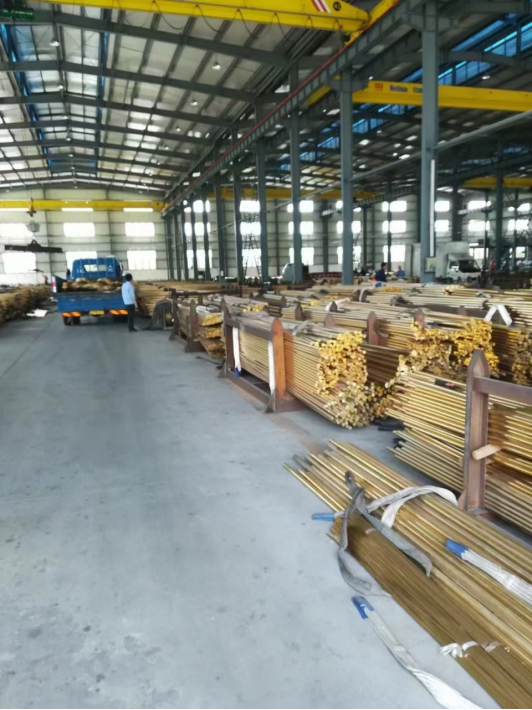Welcome to the world of metal, where brass and copper rods reign supreme in the industrial realm! If you’ve ever struggled with which rod to choose for your next project, you’re not alone. Today, we’ll delve into the world of shiny golden brass rods from Jindalai Steel Group Co., Ltd., exploring the differences between brass and copper rods and the age-old rivalry between brass and bronze. So, put on your goggles, and let’s get started!
Brass Rod vs. Copper Rod: Core Difference
First, let’s address the brass vs. pure copper rod debate. Brass is an alloy primarily composed of copper and zinc, while pure copper is, well, pure copper! The key difference lies in their properties. Brass rod is known for its excellent workability, corrosion resistance, and beautiful golden luster, making it a popular choice for decorative applications. Pure copper rod, on the other hand, offers excellent conductivity, making it ideal for electrical applications, but it’s less challenging to work with. So, if you’re looking for a rod that combines practicality and aesthetics, brass round rod may be your best choice!
Brass Rod vs. Bronze Rod: A Battle of Alloys
Now, let’s throw bronze into the mix! Bronze, like brass, is an alloy, but its primary components are copper and tin. So, what’s the difference between a brass rod and a bronze rod (like tin bronze)? Brass rods are generally more ductile and easier to work with, while bronze rods are known for their strength and wear resistance. If you’re looking for something that will stand the test of time (and maybe even some heavy-handed handling), bronze might be the way to go. But if you want something shiny and easy to shape, brass is your best bet!
Welding Brass Rods: Can You Do It?
Now, let’s answer the burning question: Can brass rods be soldered? The answer is yes, but with some caveats! Brass becomes brittle when heated, so using the correct soldering technique and filler material is crucial. If you plan to solder brass, be sure to keep the temperature low and work quickly. Remember, practice makes perfect! So, don’t be afraid to try a few tricks before you tackle the big project.
Why HPb59-1 Brass Rod is the MVP for Bolts and Nuts
Finally, let’s talk about HPb59-1 brass rods. Why are they the top choice for bolts and nuts? Because this particular grade of brass is known for its excellent mechanical properties and corrosion resistance, making it ideal for applications requiring strength and durability. Other grades might not be as suitable, as they may lack the same level of machinability or corrosion resistance. So, if you want your bolts and nuts to stand the test of time (and even withstand the rigors of some substandard wrenches), HPb59-1 is the best choice!
In short, whether you’re choosing between brass and copper rods, or considering whether brass or bronze is right for you, remember that each metal offers its own unique advantages. With the right knowledge and a sense of humor, you can confidently choose the perfect rod for your project. If you have any questions, Jindalai Steel Group Co., Ltd. is happy to assist you as you explore the shiny world of brass rods! Happy metalworking!
Post time: Sep-22-2025









